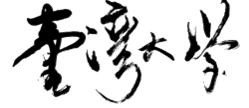Introduction to Classical Chinese Philosophy
哲學所 佐藤將之
(1) C. Defoort: “Is There such a Thing as Chinese Philosophy? Arguments of an Implicit Debate,” Philosophy East and West, Vol. 51, Number 3, July 2001, pp. 393-413.(2) Y. L. Fung: A Short History of Chinese Philosophy. NY: The Free Press, 1966.
(3) F. Mote: Intellectual Foundation of China. NJ: Princeton University Press, 1971
(4) M. E. Lewis: "The Warring States Political History." Loewe and Shaughnessy (ed.): The Cambridge History of China. Cambridge: Cambridge University Press, 1999.
(5) M. Sato: The Confucian Quest for Order: The Origin and Formation of the Political Thought of Xun Zi. Leiden: Brill, 2003.
(6) H. Fingarett: Confucius: Secular as Sacred, New York: Harper & Row, 1972.
(7) A. C. Graham: Disputers of Tao, Philosophical Argument in Ancient China, La Salle, Ill.: Open Court, 1989.
(8) B. W. Van Norden: Mengzi: With Selections from Traditional Commentaries, Indianapolis: Hackett, 2008.
(9) B. Schwartz: The World of Thought in Ancient China. MA: Harvard University Press, 1985.
(10) K.C. Hsiao (trans. By F. W. Mote): The History of Chinese Political Thought. Princeton: Princeton University Press, 1978.
Translations from Chinese Classical Texts
(1) T. de Bary and W. T. Chan (ed.): Sources of Chinese Tradition. Vol. 1, New York: Columbia University Press, 1960.
(2) Burton Watson’s translation of the Mozi, the Zhuangzi, the Xunzi and the Hanfeizi from Columbia University Press. Very readable, but the series translates only a “main” part of those texts.
(3) Chinese Text Project (http://ctext.org/) also provides English translations from a large number of early Chinese philosophical texts. Due to the restriction on copyright, most of translations were made before 1940s.








